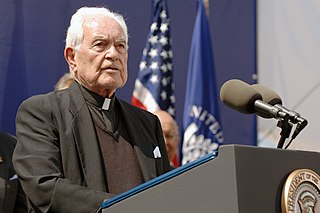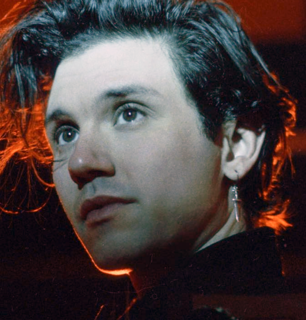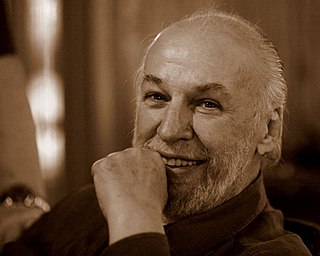A Quote by David Grinspoon
Among the radio astronomers of SETI - the Search for Extraterrestrial Intelligence - it's only sort-of a joke that the true hallmark of intelligent life is the creation of radio astronomy.
Related Quotes
Is E.T. out there? Well, I work at the SETI Institute. That's almost my name. SETI: Search for Extraterrestrial Intelligence. In other words, I look for aliens, and when I tell people that at a cocktail party, they usually look at me with a mildly incredulous look on their face. I try to keep my own face somewhat dispassionate.
Once He created the Big Bang... He could have envisioned it going in billions of directions as it evolved, including billions of life-forms and billions of kinds of intelligent beings. As a theologian, I would say that the proposed search for extraterrestrial intelligence (SETI) is also a search of knowing and understanding God through his works - especially those works that most reflect Him. Finding others than ourselves would mean knowing Him better.
To be honest, the search for a label was really weird, because some of the labels that you wouldn't expect to care about stuff like radio formats were the ones that did care. They were like, 'Yeah, we love this record, but what are we going to play on the radio?' And I was like, 'You don't have bands on the radio.'
Listen- my relationship with radio on a personal level is nothing but a one way love-a-thon... I love radio, I grew up on radio. That's where I heard Buddy Holly, that's where I heard Chuck Berry. I couldn't believe it the first time I heard one of my records on the radio, and I STILL love hearing anything I'm involved with on radio, and some of my best friends were from radio. But we were on different sides of that argument, there's no question about that.
Radio astronomers study radio waves from space using sensitive antennas and receivers, which give them precise information about what an astronomical object is and where it is in our night sky. And just like the signals that we send and receive here on Earth, we can convert these transmissions into sound using simple analog techniques.
College radio is a very important medium that needs to survive in difficult economic times when some stations are being sold off and shut down. College radio is the future for broadcasting stars and pioneers of tomorrow, and we as a band, Coldplay, support the vital mission of college radio and we also support College Radio Day, the day when college radio comes together.


































